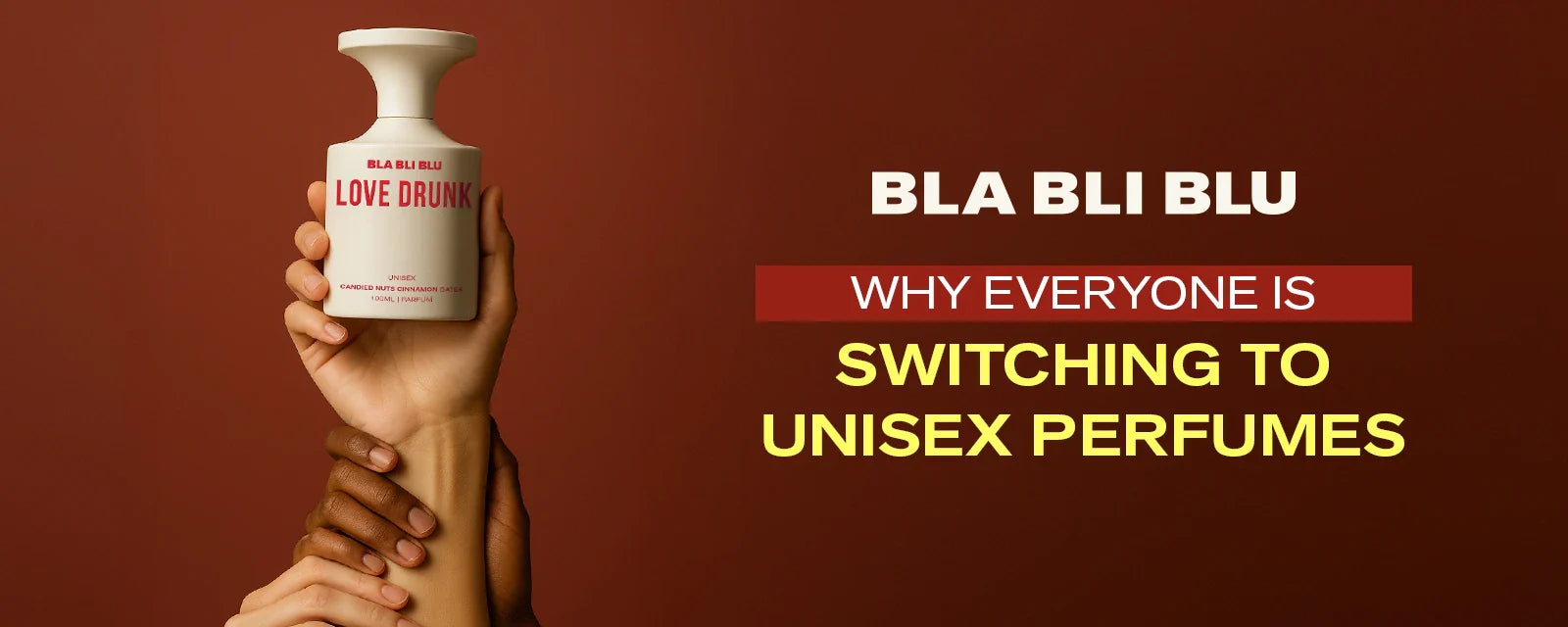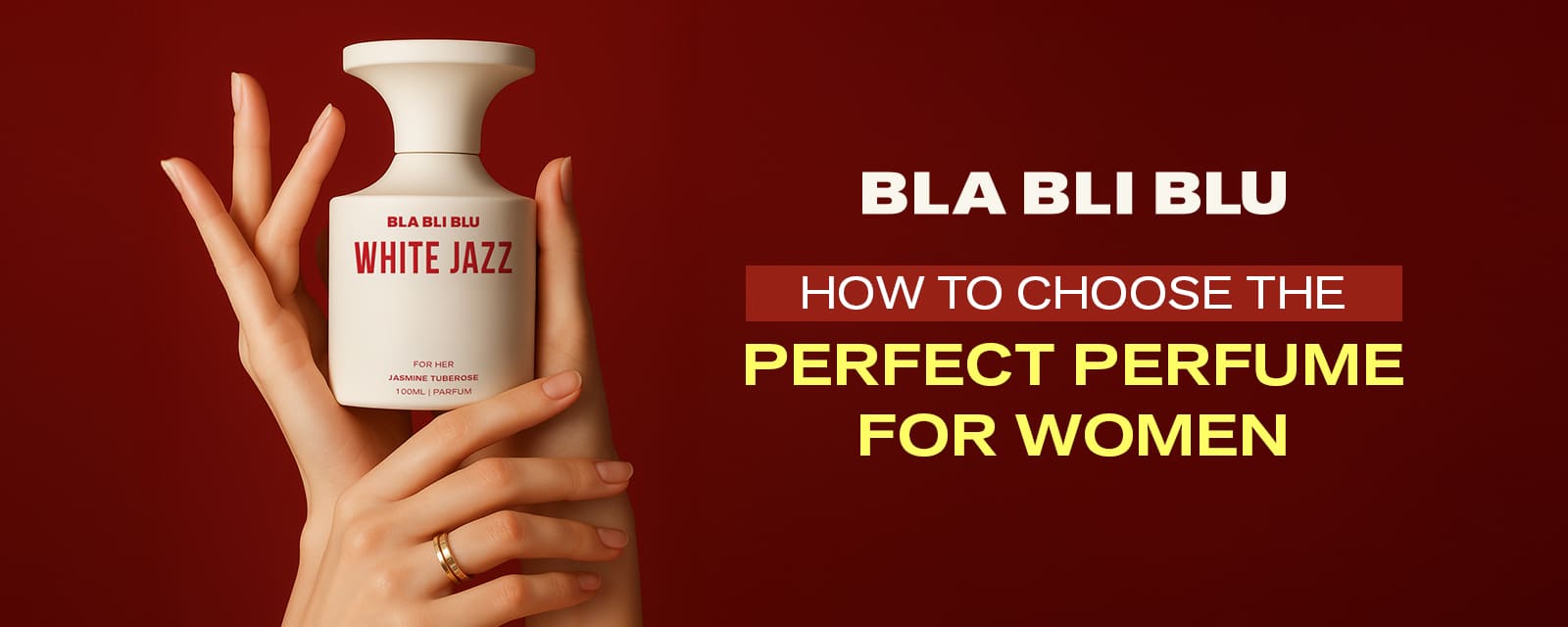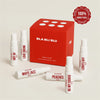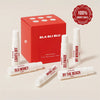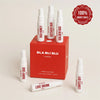Difference Between Attar and Perfume : What’s the Difference?
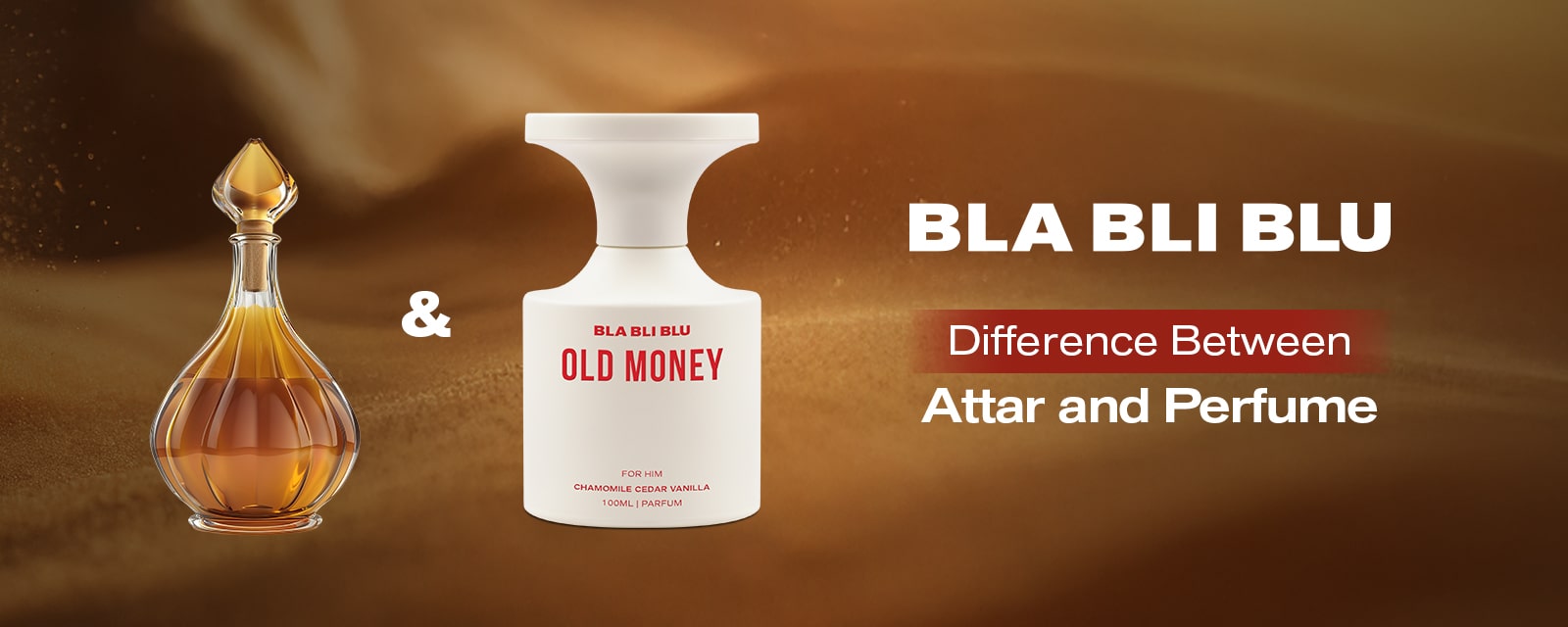
Both attar (ittar) and perfume are ways to scent the body, but there's a distinct difference between attar and perfume that sets them apart in origin and compositions. An attar is a traditional fragrance oil distilled from natural botanical materials into a carrier oil. In fact, the word attar (also spelled ittar) comes from the Persian/Arabic word for perfume, reflecting its Middle Eastern roots. Perfume, by contrast, usually refers to a modern scented liquid made by blending fragrance compounds (natural or synthetic) into an alcohol base.
Read the full blog to understand the difference.
Manufacturing Difference Between Attar and Perfume
Traditional attar production is slow and artisanal. Botanicals are distilled over heat and the aromatic steam is collected into a base oil. For example, in Kannauj the classic “deg bhapka” method involves placing plant material in a large copper vat (deg) over simmering water; the fragrant steam is funneled into a separate vessel (bhapka) containing sandalwood oil. Because this process captures the flower oils directly, this is the main difference between attar and perfume, as no alcohol is involved.
By contrast, modern perfume manufacturing mixes concentrated aromatic compounds into ethyl alcohol (and sometimes water or glycols). The perfumer’s workshop typically dissolves essential oils or synthetic fragrance molecules into high-proof ethanol. Alcohol plays several roles in perfumes: it quickly disperses the scent when sprayed, and it evaporates leaving the fragrance behind.
Also read: Difference Between Perfumes & Deodorants: Understanding the Key Differences
Cultural and Historical Significance
Attars have deep cultural roots in the Middle East and South Asia. For over a millennium, oil perfumes were prized in Islamic courts, Sufi shrines, and Mughal palaces. In many Muslim traditions, an authentic attar was believed to have spiritual power.
The Mughal emperors carried attars on their person, and emperors’ wives like Nur Jahan are famed for using rose and jasmine oils. Similarly, in Hindu culture attars are integral to puja (worship) and ceremony.
Perfumes (especially alcohol-based) have their own heritage. Ancient Egyptians, Phoenicians and Persians created early perfumes by steeping plants, and European perfumery evolved independently (for example, French Eau de Cologne in the 1700s).
Be it perfume for men or women, the global industry today is more Western-led. Still, Middle Eastern fragrance culture often embraces both styles: for example, it’s common in the Gulf to layer scents – burning incense (bakhoor) around the home, dabbing attar oil on pulse points, and then adding a spritz of commercial perfume.
Usage and Longevity on Skin
Difference between attar and perfume also lies in how they are worn and how long they last. Attars come as concentrated oils and are typically applied sparingly. They are not sprayed; instead one dabs a drop or two onto pulse points (wrists, neck) from a glass applicator or roller. In practice, this makes attars very long-lasting. Users often report that a few drops can linger all day or even into the next morning.
Perfumes, being alcohol-based, are applied differently. Most consumers spray or dab perfumes onto skin or clothing. The alcohol causes an immediate burst of top notes, which then fade through heart and base notes. However, alcohol evaporates relatively quickly, so the scent diminishes after a few hours. In fact, many articles note that “perfume… tends to evaporate more quickly than attar”, meaning perfumes often need reapplication during the day.
Price and Availability of Attar and Perfume
In general, attars tend to be more expensive and niche than mainstream perfumes. Because attars use only natural botanicals and traditional extraction (often labor-intensive), their cost reflects the raw materials and time involved. For example, producing real rose attar requires large quantities of rose petals; one report noted 10 mL of pure rose oil could cost around 10,000 rs or more in India, whereas a synthetic rose fragrance is just a few dollars.
Availability follows price and cultural lines. Attars are widely sold in South Asian and Middle Eastern markets ( bazaars, specialty perfumeries) and online stores that serve diaspora communities. Perfumes are ubiquitous worldwide: almost every beauty shop sells a wide variety, from bargain bottles to luxury lines.
Must read: Differences between Eau de Toilette and Eau de Parfum In 2025
Pros and Cons of Attar and Perfume
Attar (oil-based perfume) – Pros:
- 100% natural composition (no alcohol or synthetic additives). Gentle on skin for many wearers and often hypoallergenic compared to complex chemical formulas.
- Long-lasting scent. The oil base holds fragrance for hours (often a full day), so fewer reapplications are needed.
- Rich, authentic aromas. Attars often have deep, complex profiles (rose, oud, sandalwood, amber, etc.) that evolve uniquely on each person.
- Cultural and spiritual appeal. Wearing attar can be a way to connect with tradition or faith (e.g. alcohol-free scents for those observing Islamic guidelines.
Attar – Cons:
- Higher cost. Genuine attars are expensive because of the rare materials and manual distillation required.
- Oil residue. Attars can feel oily on the skin and may stain fabrics if not fully absorbed. Some people may find the texture heavy.
- Limited variety. Because they rely on natural sources, there are fewer attar “flavors” available than mass perfumes. Unusual or trendy notes (like certain fruits or candies) may not exist as attars.
- Strong intensity. Attars can be very potent; only a drop is needed. For people used to light sprays, the strength may feel overwhelming at first.
Perfume (alcohol-based) – Pros:
- Vast selection. Perfumes come in thousands of compositions and concentrations, from light citrus EDTs to rich amber-parfums. There’s almost any scent theme you can imagine.
- Convenient application. Perfumes are designed for easy spraying or dabbing. The alcohol base feels lightweight and dries quickly on skin.
- Cost range. You can buy a simple perfume for a few dollars or splurge on haute couture fragrances. Synthetics keep many perfumes affordable.
- Bright projection. Alcohol causes an initial “sillage” (scent trail) that announces the fragrance more loudly than many oil perfumes.
Perfume – Cons:
Alcohol and chemicals. The high alcohol content can dry out skin and is not suitable for those avoiding alcohol. Fragrance chemicals can trigger sensitivities or headaches in some people. Perfumes also have a higher “environmental impact” if made with petrochemicals.
Less personal. Because many perfume bottles are sprayed and shared in public spaces, the scent can become common. Attars’ intimate dab-on ritual often feels more personal and signature.
Final Thoughts
Different users might have different preferences. Someone who values natural, traditional scents and wants a very long-lasting, alcohol-free fragrance may lean toward attars. This includes people interested in heritage perfumes, those with sensitive skin, or individuals for whom alcohol-free products are important (religious reasons, etc.).
On the other hand, someone who enjoys variety, lighter spritz-on fragrances, or budget-friendly options will likely prefer conventional perfumes. For example, a teen experimenting with many new scents or a shopper looking for a fresh floral cologne might choose an alcohol-based perfume. Meanwhile, a fragrance connoisseur or someone wanting a rich signature scent might turn to attar. Ultimately the choice comes down to personal style and values.
Frequently Asked Questions
Q1. What is the main base of attar?
Ans. Traditionally speaking, attars have been oil based and lack alcohol. All the pleasant smell comes from the botanicals used in the creation of the scent.
Q2. What is the main base of perfume?
Ans. Perfume is typically alcohol-based and has an oil composition of 25 percent or less, depending on the kind of perfume it is.
Q3. Which generally has stronger projection, attar or perfume?
Ans. Perfume generally has stronger initial projection because of the alcohol base that starts to evaporate quickly.
Q4. Which generally lasts longer on the skin, attar or perfume?
Ans. Attar often lasts longer on the skin due to its oil base and can be felt throughout the day.
Q5. Are attars and perfumes applied in the same way?
Ans. No, attars are typically dabbed, while perfumes are often sprayed on pulse points.
